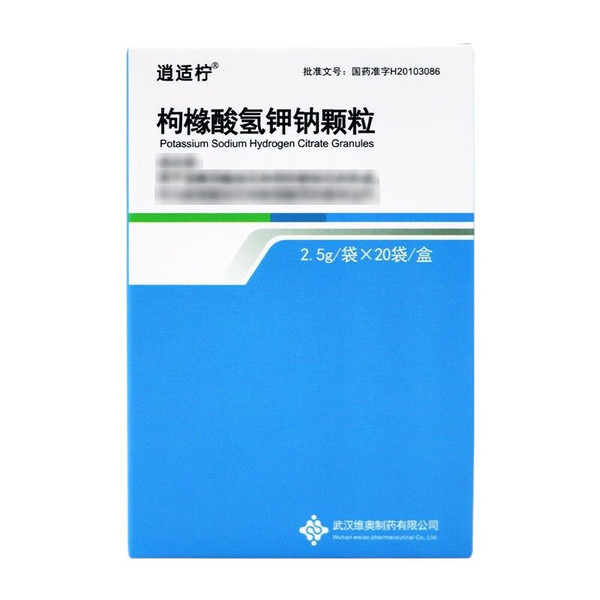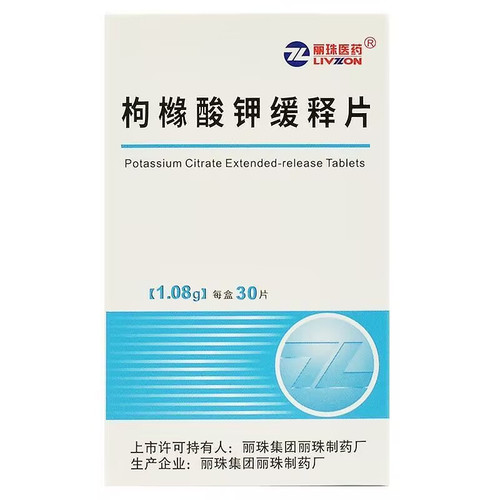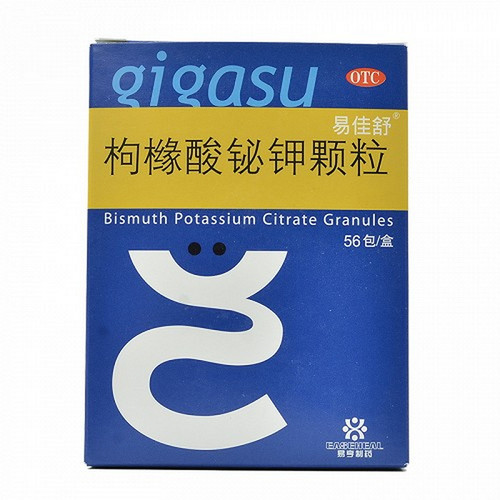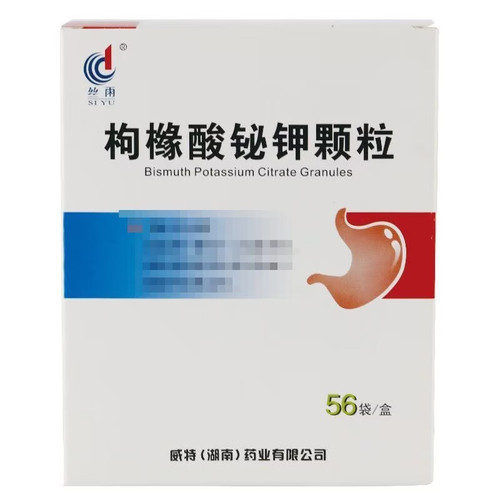Product Overview
[Drug Name]
Generic Name: Potassium Sodium Hydrogen Citrate Granules
Trade Name: Xiaoshi Ning Potassium Sodium Hydrogen Citrate Granules 2.5g*20 bags
Pinyin Full Code: ZuoShiNing ZuoZuoSuanQingJiaNaKeLi 2.5g*20Dai
[Main Ingredients]
Potassium Sodium Hydrogen Citrate.
[Properties]
Pale orange granules with an aromatic odor and a salty taste.
[Indications/Main Functions]
Used for dissolving uric acid stones and preventing new stone formation. As a maintenance treatment for cystine stones and cystinuria.
[Specifications]
2.5g*20 bags
[Dosage and Administration]
Unless otherwise specified, the daily dose is 4 standard measuring spoons (each measuring spoon contains 2.5g, for a total of 10g granules). Take three times after meals: one measuring spoon each in the morning and at noon, and two measuring spoons in the evening. The granules can be taken with water. The pH of fresh urine must be within the following ranges: 6.2-6.8 for uric acid stones and uricosuria treatment; 7.0-8.0 for cystine stones. If the pH is below the recommended range, increase the evening dose by a measured spoonful. If the pH is above the recommended range, reduce the evening dose by half a measured spoonful. If the pH of fresh urine is measured before taking this product and remains within the recommended range, the patient and physician can be assured that the appropriate dosage has been achieved.
[Adverse Reactions]
Mild gastrointestinal discomfort may occur occasionally.
[Contraindications]
This product should not be used in patients with acute or chronic renal failure or when sodium chloride is absolutely contraindicated. This product is contraindicated in patients with severe acid-base imbalance (base metabolism) or chronic urinary tract infections with ureolytic bacteria.
[Drug Interactions]
Any increase in extracellular potassium concentration will decrease cardiac glucose metabolism, while any decrease in extracellular potassium concentration will increase the incidence of arrhythmias. Aldosterone antagonists, potassium-sparing diuretics, ACE inhibitors, nonsteroidal anti-inflammatory drugs, and peripheral analgesics can reduce renal potassium excretion. Remember that 1g of potassium sodium bicitrate contains 0.172g, or 4.4mmol, of potassium. If a low-sodium diet is recommended, remember that 1g of potassium sodium bicitrate contains 0.1g, or 4.4mmol, of sodium (equivalent to 0.26g of sodium chloride). Coadministration of medications containing citrate and aluminum-containing medications increases aluminum absorption. If both medications must be used, the interval between administration should be at least 2 hours.
[Precautions]
Before the first use of potassium sodium bicitrate granules, check renal function and serum electrolytes. Keep out of the reach of children.







